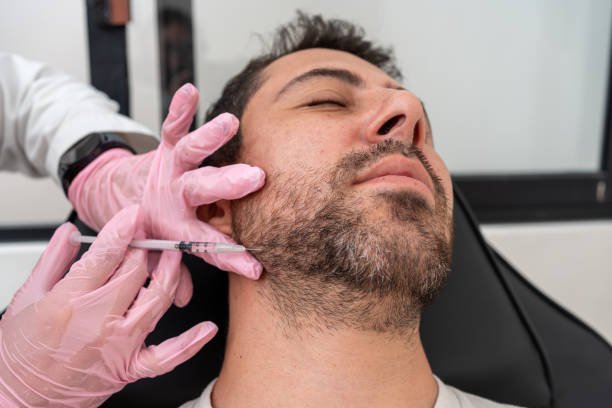Our loved ones’ requirements and difficulties may change as they become older, making it harder for them to maintain the same degree of independence they once had. For their health and quality of life, it’s critical to know when to think about in-home nursing care. In-home nursing care ensures that elderly or chronically ill people receive the care they require while providing families with peace of mind by providing expert medical and personal help in the convenience of their own homes. These are some indicators that in-home nursing care could be beneficial for your loved one.
1. Frequent Falls or Mobility Issues
A major indicator that your loved one may need in-home nursing care near me is an increased frequency of falls or difficulty moving around. As people age, mobility issues such as arthritis, joint pain, or muscle weakness can lead to instability, increasing the risk of falls. Even with assistive devices like walkers or canes, some individuals may struggle with daily activities like climbing stairs or walking to the bathroom. A nurse can provide both physical assistance and supervision to prevent accidents, ensuring that your loved one remains safe and mobile within their home.
2. Difficulty Managing Medications
Many elderly individuals have complex medication regimens due to chronic illnesses such as diabetes, hypertension, or heart disease. If your loved one has trouble remembering to take their medications on time, or if they frequently confuse dosages, it may be time to consider skilled in-home nursing care. A professional nurse can manage medication schedules, ensure proper dosages, and monitor any potential side effects, reducing the risk of complications from incorrect medication use.
3. Decline in Personal Hygiene
A noticeable decline in personal hygiene, such as wearing the same clothes for days or neglecting to bathe regularly, is often a clear sign that your loved one is struggling with daily self-care. This could be due to physical limitations, depression, or cognitive decline. In-home nursing care can provide assistance with bathing, dressing, and grooming, ensuring that your loved one maintains their dignity and comfort. Home service nursing care can be tailored to the individual’s needs, ensuring they receive the proper level of care and attention.
4. Difficulty with Basic Household Tasks
If your loved one is finding it hard to perform simple household chores like cooking, cleaning, or doing laundry, they may be facing physical or cognitive challenges. These tasks, which were once routine, can become overwhelming, particularly for individuals with arthritis, balance issues, or early stages of dementia. In-home nursing care near me provides assistance with these daily tasks, helping your loved one maintain a clean and comfortable living environment without the physical strain.
5. Worsening of Chronic Conditions
If your loved one has a chronic condition like heart disease, diabetes, or respiratory problems, and you’ve noticed their symptoms worsening, it may be time to seek skilled in-home nursing care. Nurses who specialize in chronic disease management can monitor vital signs, administer medications, and provide treatments that help manage symptoms and prevent complications. This can greatly improve your loved one’s health outcomes and help them avoid unnecessary hospitalizations.
6. Memory Loss and Cognitive Decline
Cognitive decline, particularly in cases of Alzheimer’s or dementia, can be challenging for both the individual and their family. If your loved one is becoming increasingly forgetful, confused, or disoriented, it’s essential to consider full-time nursing care at home. A nurse can ensure that the individual is safe, assist with daily activities, and provide specialized care that addresses the unique needs of those with memory impairments. This type of care helps maintain a familiar environment for your loved one while reducing the strain on family caregivers.
7. Inability to Handle Finances
Managing finances requires a clear mind and attention to detail, which can become difficult as cognitive abilities decline. If your loved one is missing bill payments, unable to balance their checkbook, or falling prey to financial scams, these could be signs that they need home service nursing care. While a nurse won’t manage finances, they can ensure that your loved one stays organized and remind them of important tasks like paying bills, thereby providing a stable routine that helps prevent financial mismanagement.
8. Increased Social Isolation
As people age, they may lose touch with friends, family, and community due to mobility issues, loss of driving privileges, or the death of peers. Social isolation can lead to depression, anxiety, and a decreased quality of life. If your loved one seems withdrawn or lonely, in-home nursing care near me may be the answer. A caregiver can provide companionship, facilitate social interactions, and ensure that your loved one remains engaged in activities they enjoy, whether that’s reading, playing games, or simply talking.
9. Difficulty Eating or Maintaining a Healthy Diet
Malnutrition is a common issue among the elderly, especially those who live alone. If your loved one has lost interest in cooking, frequently skips meals, or has difficulty chewing or swallowing, it may be time to consider skilled in-home nursing care. A nurse can help with meal preparation, monitor their nutritional intake, and ensure they are eating balanced meals to support their health and energy levels. In cases where dietary restrictions are needed due to conditions like diabetes, the nurse can ensure compliance with those guidelines.
10. Sudden Weight Loss or Changes in Physical Appearance
Unexplained weight loss, changes in posture, or a frail appearance can be signs of an underlying health issue that needs attention. These changes could be due to malnutrition, depression, or an unmanaged medical condition. Full-time nursing care at home ensures that your loved one is regularly monitored for any changes in their physical health, and the nurse can coordinate with healthcare providers to address any concerns before they escalate.
11. Exhaustion Among Family Caregivers
Providing care for an elderly or ill loved one can be physically and emotionally draining for family members. If you or other family members are feeling overwhelmed or burned out, it might be time to seek professional help. Cost for in-home nursing care may be a concern, but the benefits of having a trained nurse to share the caregiving responsibilities far outweigh the challenges. In-home nursing care can provide respite for family caregivers, ensuring that your loved one receives consistent care while giving family members a much-needed break.
12. Need for Post-Surgical Care or Rehabilitation
After surgery or a major medical event, your loved one may need help with recovery. Tasks like wound care, physical therapy, and pain management often require the expertise of a skilled nurse. Skilled in-home nursing care provides specialized support during this recovery period, reducing the risk of complications and promoting a faster, smoother healing process. Whether the recovery is short-term or part of a longer rehabilitation journey, having a nurse available ensures that your loved one is following the doctor’s recommendations and recovering in a safe environment.
13. End-of-Life Care Needs
For those nearing the end of life, full-time nursing care at home cost becomes a consideration for families looking to provide comfort and dignity. In-home nursing care can offer palliative or hospice care that focuses on pain relief, emotional support, and maintaining quality of life in the final stages of a terminal illness. This type of care allows individuals to spend their remaining time in the familiarity of their own home, surrounded by loved ones, rather than in a hospital setting.
Conclusion
Although choosing to provide in-home nursing care for a loved one is never simple, the first step in safeguarding their wellbeing is identifying the warning signals that it might be required. Whether they require medical attention, companionship, or help with everyday duties, in-home nursing services offer a customized solution that benefits the patient and their family. Although it is reasonable to be concerned about the cost for in-home nursing care, many families find it to be a priceless alternative due to the advantages of receiving individualized, skilled care in the convenience of their own homes.















Leave a Reply